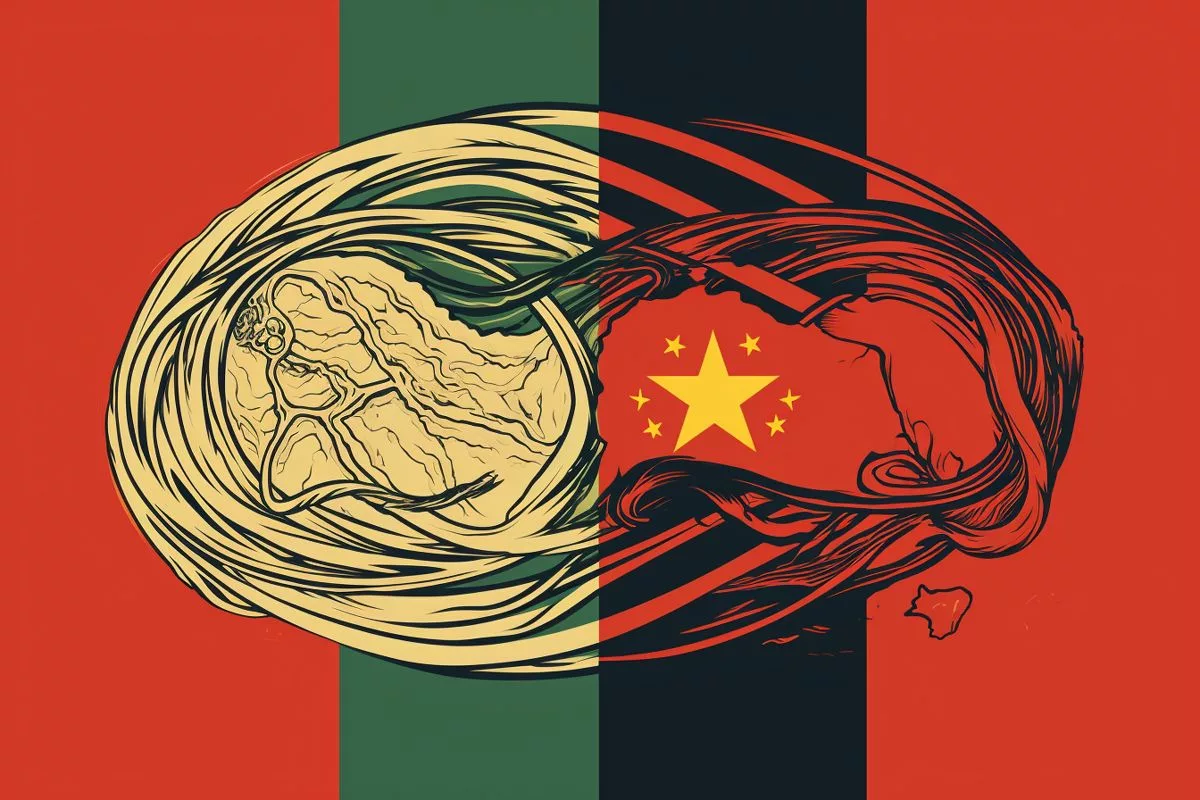The Tourism Equity Fund in South Africa is a new R1.2 billion project that seeks to promote expansion, transformation, and inclusivity in the tourism sector. The Fund offers financial aid and support to Qualifying Small Enterprises and Emerging Micro Enterprises, prioritizing job creation, sustainability, and targeted groups such as youth, women, and disabled individuals. The Department of Tourism and the Small Enterprise Finance Agency are collaborating with banks and financial institutions to ensure the successful implementation of the TEF and promote a more inclusive and prosperous tourism sector.
What is the Tourism Equity Fund in South Africa?
The Tourism Equity Fund (TEF) is a R1.2 billion project launched by the Department of Tourism and the Small Enterprise Finance Agency (sefa) to provide financial aid and support to Qualifying Small Enterprises and Emerging Micro Enterprises in the tourism sector. The TEF aims to promote expansion, transformation, and inclusivity in accordance with the Tourism B-BBEE Sector Codes, with a focus on job creation, sustainability, and targeted groups such as youth, women, and disabled individuals. Applicants can find more information and apply on the Department of Tourism’s website.
A Fresh Start for the Tourism Sector
A new day dawns for South Africa’s tourism industry as it embarks on an exhilarating new adventure. The Department of Tourism and the Small Enterprise Finance Agency (sefa) have unveiled the application process for the Tourism Equity Fund (TEF). This R1.2 billion project seeks to energize the sector, promoting expansion, transformation, and inclusiveness in accordance with the Tourism B-BBEE Sector Codes.
The TEF has been created to tackle the financing obstacles encountered by Qualifying Small Enterprises and Emerging Micro Enterprises in the tourism sector. The Fund offers financial aid and support to help these businesses flourish. The TEF prioritizes job creation and sustainability while also emphasizing geographic distribution and targeted groups such as youth, women, and disabled individuals.
A collaboration between the Department of Tourism, sefa, banks, and financial institutions in South Africa has been formed to guarantee the successful implementation of the TEF. A blended finance approach is utilized, with an impressive 80% of TEF funds allocated to existing Small Medium and Micro Enterprises (SMMEs) to facilitate their growth. The remaining 20% is designated for new businesses, further promoting expansion and inclusivity within the sector.
Fostering Inclusivity and Transformation
Sefa oversees the Fund’s management and execution through a Fund Management Agreement signed with the Department of Tourism. The Department, in turn, supports and monitors the TEF’s implementation on a monthly basis. The qualifying criteria for tourism enterprises stipulate that they must have at least 30% Black ownership before or after receiving financial assistance. This focus on inclusivity underlines the TEF’s commitment to investing in various sub-sectors of the tourism industry, as mandated in the Tourism B-BBEE Sector Codes.
The Department of Tourism remains steadfast in its dedication to promoting transformation within the sector. Minister de Lille explains that the TEF’s funding structure includes both grant funding and debt financing to address the unique needs of tourism enterprises. These businesses may require assistance for equity acquisition, new development investments, or expansion of their existing operations.
The TEF is backed by an admirable alliance between public-private partnerships, involving private, commercial, and non-commercial banks, as well as various developmental funding institutions. Minister de Lille emphasizes that this collaboration serves as an outstanding example of successful cooperation, striving for a more inclusive and prosperous tourism sector.
Applying for the Tourism Equity Fund
The Department of Tourism is unwavering in advancing the transformation agenda, and the TEF aims to generate equitable opportunities that contribute to an inclusive and revitalized tourism economy. In light of the revised qualifying criteria published in Regulation Gazette No 11067, Volume 697, No 49018 on 25 July 2023, all applicants, including previous ones, are urged to submit new applications that comply with the TEF’s updated requirements.
For those enthusiastic about joining the growing ranks of South African tourism enterprises, more information on the Tourism Equity Fund and the application process can be found on the Department of Tourism’s website: https://www.tourism.gov.za/CurrentProjects/Tourism_Equity_Fund/Pages/Tou…
As the Tourism Equity Fund ushers in a new age of transformation and inclusivity, South Africa’s tourism industry is poised for unparalleled growth. Businesses and enterprises can now take advantage of the TEF’s financial support, claiming their rightful place in the evolving landscape of this essential industry. Together, we embark on a voyage towards a more inclusive, sustainable, and prosperous tourism sector, paving the way for a brighter future for all South Africans.
1. What is the Tourism Equity Fund in South Africa?
The Tourism Equity Fund (TEF) is a R1.2 billion project launched by the Department of Tourism and the Small Enterprise Finance Agency (sefa) to provide financial aid and support to Qualifying Small Enterprises and Emerging Micro Enterprises in the tourism sector.
2. What is the aim of the TEF?
The TEF aims to promote expansion, transformation, and inclusivity in accordance with the Tourism B-BBEE Sector Codes, with a focus on job creation, sustainability, and targeted groups such as youth, women, and disabled individuals.
3. Who is eligible to apply for the TEF?
Qualifying Small Enterprises and Emerging Micro Enterprises in the tourism sector are eligible to apply for the TEF. They must have at least 30% Black ownership before or after receiving financial assistance.
4. What kind of financial aid and support does the TEF offer?
The TEF offers a blended finance approach with grant funding and debt financing to address the unique needs of tourism enterprises. The Fund prioritizes job creation and sustainability while also emphasizing geographic distribution and targeted groups such as youth, women, and disabled individuals.
5. What is the role of the Department of Tourism in the TEF?
The Department of Tourism supports and monitors the TEF’s implementation on a monthly basis. The Department remains dedicated to promoting transformation within the sector.
6. How is the TEF managed and executed?
Sefa oversees the Fund’s management and execution through a Fund Management Agreement signed with the Department of Tourism. The TEF is backed by an alliance between public-private partnerships, involving private, commercial, and non-commercial banks, as well as various developmental funding institutions.
7. Where can I find more information on the TEF and the application process?
More information on the Tourism Equity Fund and the application process can be found on the Department of Tourism’s website.
8. What is the significance of the TEF for South Africa’s tourism industry?
The TEF ushers in a new age of transformation and inclusivity, promoting a more inclusive, sustainable, and prosperous tourism sector. It offers financial support to businesses and enterprises, contributing to the growth and evolution of this essential industry.








